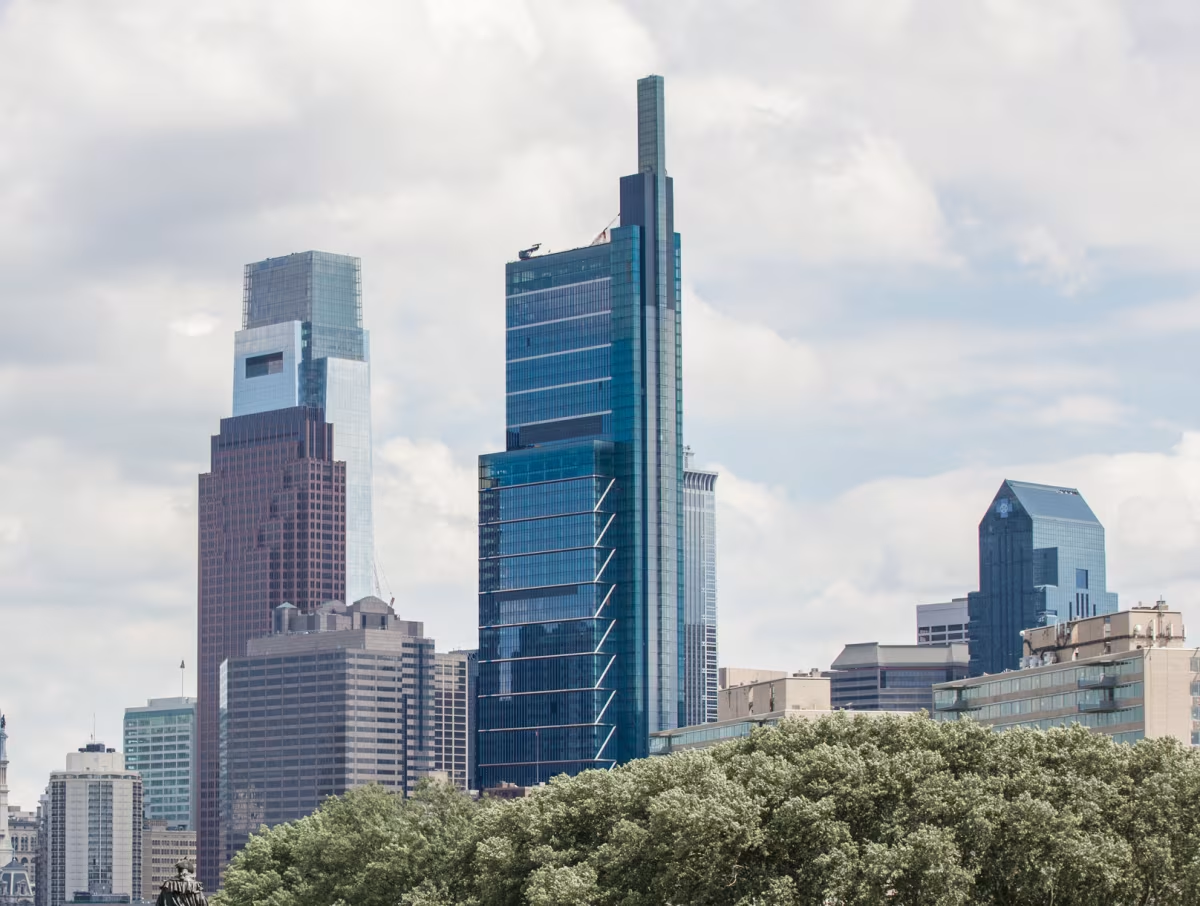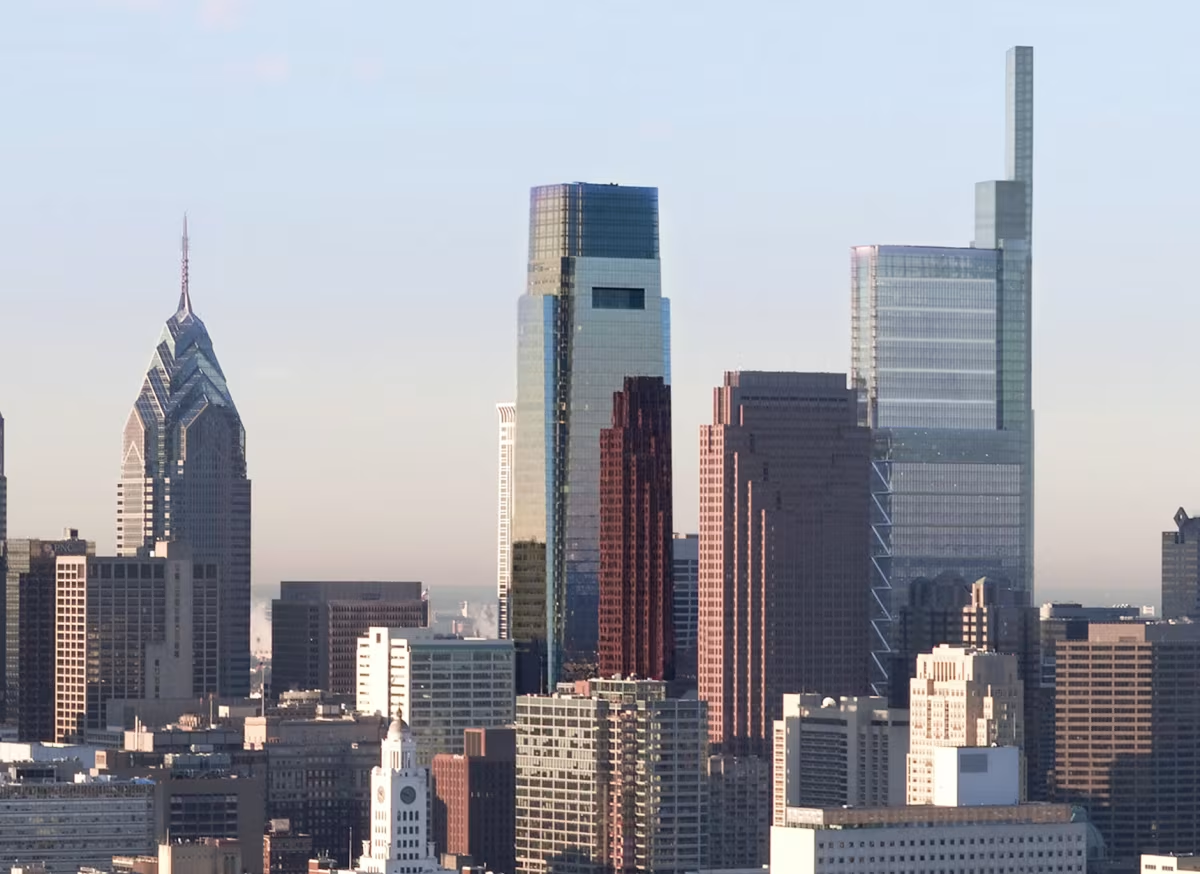Comcast Technology Center vs Comcast Center


Comparing the Comcast Technology Center and the Comcast Center is interesting because they both rise in Philadelphia, PA, yet they were conceived by two different design teams, Foster + Partners and Robert A.M. Stern Architects, and were completed at different points in time. They were finished more than a decade apart.
This contrast within the same city allows us to see how different creative minds interpreted the evolving needs of Philadelphia across time.
Let's take a closer look!
Height & Size
The Comcast Technology Center is clearly the larger tower of the two, both in terms of height and number of floors. It rises to 1112ft (339m) with 59 floors above ground, while the Comcast Center reaches 974ft (297m) with 58 floors above ground.
Of course, each project may have faced different briefs or regulatory constraints, which we don't really know about and could also explain the outcome.
Architectural Style
Both the Comcast Technology Center and the Comcast Center were designed in line with the aesthetic conventions of the Contemporary style.
At the time, this style was at the height of its popularity. So both Foster + Partners and Robert A.M. Stern Architects followed what was in many ways expected of them, producing designs that fit comfortably within contemporary architectural norms, rather than breaking with convention.
Uses
The Comcast Technology Center follows a mixed-use model, combining commercial, hotel and retail. In contrast, the Comcast Center has remained primarily commercial.
The Comcast Technology Center incorporates a 5-star hotel with 220 rooms. More information is available at the official website.
The Comcast Center also provides 120 parking spaces.
Structure & Facade
The two towers rely on different structural systems, reflecting distinct engineering strategies.
The Comcast Technology Center uses a Trussed Tube In Tube structural system, which combines a central core with a perimeter tube reinforced by diagonal bracing, while the Comcast Center uses a Frame system, that relies on a regular grid of columns and beams to sustain its weight.
Yet, when it comes to their facade, they both employed the same solution, a Curtain Wall facade.
A curtain wall is a non-load-bearing facade hung from the structural frame. It is anchored to floor slabs and transfers only its own weight and wind loads, allowing for sleek, glassy exteriors.
| Comcast Technology Center | Comcast Center | |
|---|---|---|
| Foster + Partners | Architect | Robert A.M. Stern Architects |
| 2013 | Design Started | 2001 |
| 2014 | Design Ended | 2005 |
| 2014 | Construction Started | 2005 |
| 2019 | Year Completed | 2008 |
| Contemporary | Architectural Style | Contemporary |
| Mixed | Current Use | Commercial |
| 59 | Floors Above Ground | 58 |
| 2 | Floors Below Ground | 3 |
| 267 | Last Floor Height | 267 |
| 339 m | Height (m) | 297 m |
| 31 | Number of Elevators | 37 |
| Trussed Tube In Tube | Structure Type | Frame |
| Steel | Vertical Structure Material | Steel |
| Poured Concrete Over Metal Decking | Horizontal Structure Material | Poured Concrete Over Metal Decking |
| No | Facade Structural? | No |
| L. F. Driscoll | Main Contractor | L. F. Driscoll Company |
| Liberty Property Trust | Developer | Liberty Property Trust |
| OLIN | Landscape Architect | Olin Partnership |
| BALA Engineers | MEP Engineer | Paul H. Yeomans, Inc. |
| Thornton Tomasetti | Structural Engineer | Thornton Tomasetti |
| Vidaris | Facade Consultant | Curtain Wall Design And Consulting And Enclos Corp. |
| PA | State | PA |
| Philadelphia | City | Philadelphia |
| 1800 Arch Street | Address | 1701 John F. Kennedy Blvd |